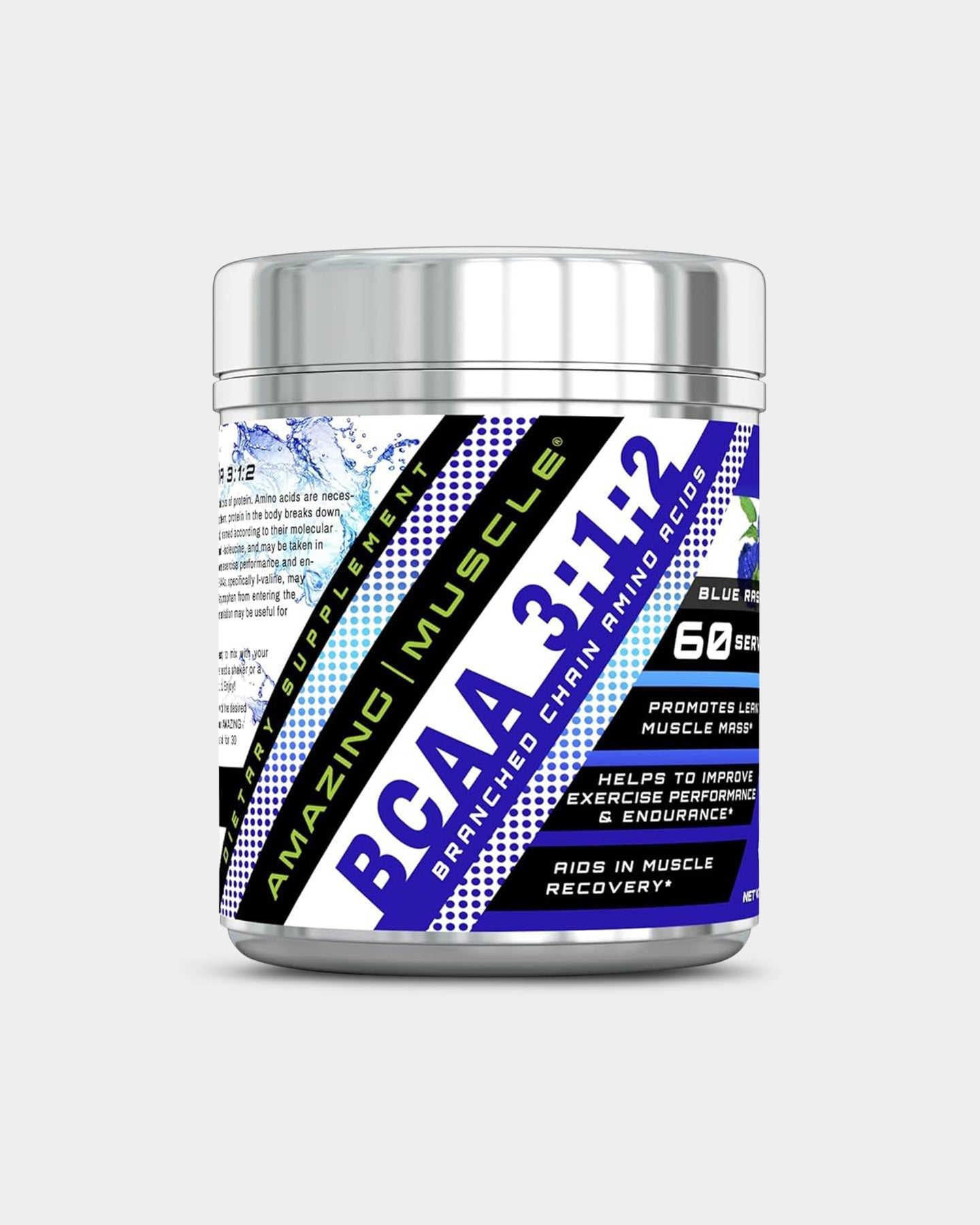Smart Ways to Use BCAA for Optimal Muscle Recovery in 2025

Essential Understanding of BCAAs and Their Advantages
Branched-Chain Amino Acids (BCAAs) have gained significant attention over the years, especially among athletes and fitness enthusiasts seeking optimal muscle recovery and performance enhancement. As we step into 2025, the importance of BCAAs in sports nutrition and muscle recovery cannot be overstated. These essential amino acids—leucine, isoleucine, and valine—play a vital role in muscle protein synthesis, energy production, and even fat metabolism. The interest in BCAAs reflects a growing understanding of their multifaceted benefits, from reducing muscle soreness to aiding weight reduction.
This article will delve into the key benefits of BCAAs for muscle recovery, the recommended dosages, and effective ways to incorporate them into your fitness regimen. We’ll explore the ideal timing—whether before, during, or after workouts—and provide insights on how to select the right BCAA supplement to align with your fitness goals.
By the end of this article, you’ll have a comprehensive roadmap for utilizing BCAAs effectively, ensuring you reap the maximum benefits for your workouts and recovery.
How to Optimize BCAA Dosage for Muscle Building
Once you grasp the importance of BCAAs, determining the right dosage becomes crucial. More isn’t always better, and understanding the appropriate BCAA dosage is essential for maximizing your muscle recovery and growth effectively. Scientific studies suggest that a dose of 5-10 grams of BCAAs per serving is optimal for most athletes. However, factors like body weight, training intensity, and overall dietary habits can influence these recommendations.
Additionally, the timing of BCAA intake can significantly affect their efficacy. Taking BCAAs before and after workouts can enhance muscle recovery and minimize soreness. For those engaged in prolonged or intense training sessions, consuming BCAAs during workouts can help maintain energy levels.
Furthermore, experimenting with different timing strategies—such as BCAA intake before sleep to support overnight recovery—can yield beneficial results. Incorporating suggestions from fitness nutritionists could significantly enhance your recovery strategy.
Understanding BCAA for Women
An often overlooked demographic is women in fitness, who also stand to benefit greatly from BCAA supplementation. Women can experience significant gains in muscle strength and recovery from BCAA intake, comparable to their male counterparts. For female athletes, a BCAA dosage tailored to their specific training regimen and energy expenditure is crucial.
Incorporating BCAAs can help alleviate muscle soreness and support endurance training, making them particularly useful during competitions. Moreover, BCAAs may assist in weight management, aiding women in achieving their fitness goals without compromising muscle mass.
Ultimately, understanding the unique needs of women athletes regarding BCAA supplementation can lead to a more personalized approach to fitness and recovery strategies.
BCAA Supplements and Potential Side Effects
While BCAAs are generally considered safe, it’s essential to discuss potential side effects, especially for beginners. Common side effects can include digestive discomfort if taken in excessive amounts or poor-quality supplements. It’s important to source high-quality BCAA products that are free from artificial ingredients and excess sugars.
Moreover, it is advisable to consult with a healthcare professional or nutritionist before beginning a BCAA supplementation routine, particularly for those with pre-existing health conditions. Staying informed about customer reviews can help guide your choice in selecting reliable products.
Combining BCAA with Other Supplements
Building on the foundational understanding of BCAAs, consider their integration with other supplements for enhanced recovery and performance. One popular combination is BCAAs with creatine, which can work synergistically to boost muscle power and endurance. Many athletes find that this combination leads to improved training outcomes without significant adverse effects.
Furthermore, pairing BCAAs with protein supplements can also enhance amino acid profiles, ensuring your body receives all the necessary building blocks for muscle repair. This integration can lead to maximized effectiveness in maintaining muscle mass during caloric restriction.
Always remember that the combination should align with your personal fitness goals. Whether you’re focused on muscle building, endurance, or overall fitness enhancement, understanding how BCAAs complement other supplements is crucial for success.
Practical Ways to Incorporate BCAAs into Your Diet
Integrating BCAAs into your dietary regimen can be quite straightforward. They are available in various forms—powder, capsules, and ready-to-drink beverages. For those who prefer convenience, BCAA drinks can be an easy addition to your hydration plan throughout workouts. Alternatively, BCAA powders can be mixed into smoothies or shakes for a quick boost before or after workouts.
Exploring recipes that incorporate BCAAs can also add diversity to your nutrition plan. Adding BCAA powder to post-workout meals can ensure your body receives the necessary recovery nutrients promptly.
Moreover, planning your meals around BCAA intake can significantly enhance recovery and performance outcomes. Combining them with protein-rich foods can create an effective synergy for muscle repair, ensuring you harness their full potential.
The Role of BCAAs in Weight Management
As fitness enthusiasts continue to explore optimal recovery strategies, BCAAs have emerged as a key element in weight management. They may help mitigate muscle loss during caloric deficits, making them an effective tool for anyone undergoing a weight reduction plan. Studies indicate that BCAAs can also enhance fat oxidation during exercise, leading to improved body composition results.
Additionally, supplementing with BCAAs can promote feelings of fullness, which can be beneficial for controlling calorie intake throughout the day. This makes them particularly advantageous for those embarking on a weight loss journey while still aiming to maintain muscle mass.
Furthermore, using BCAAs as part of a meal planning strategy can strategically align your physical activity and nutritional intake, ensuring you meet both metabolic and performance goals effectively.
Finding the Right BCAA Products
Choosing the right BCAA supplement can be overwhelming given the plethora of products available. Look for brands known for their quality and transparency in ingredients. Customer reviews can offer valuable insights into product efficacy and taste, helping you make an informed decision.
Moreover, it’s crucial to assess the form of BCAAs that best suits your lifestyle—whether it’s powders, capsules, or ready-to-drink options. For those aiming for quick and convenient recovery post-workout, ready-to-drink BCAAs might be the most effective.
Whichever product you choose, ensuring that it aligns with your fitness goals will ultimately lead to a more successful supplementation experience.

Expert Recommendations for Effective BCAA Use
Experts recommend structuring your BCAA intake around your training schedule for optimal results. Consuming BCAAs 30 minutes before workouts can provide an energy boost, while post-workout intake within the anabolic window can enhance recovery significantly. Adhering to the best practices regarding dosages and timings will yield the desired results in muscle recovery and strength gains.
Furthermore, cycling your BCAA intake can prevent the body from adapting to constant supplementation, thus maintaining its effectiveness. Regularly assessing how BCAAs fit into your overall fitness regime can lead to better results and clearer visibility of progress towards your fitness goals.
Listening to your body and tweaking your BCAA routine according to personal training intensity and recovery needs is essential for long-term success. Keeping a training diary to track your progress with BCAA use can also offer insights on their impact on your performance.
Q&A: Common Questions About BCAA Use
1. What are the best times to take BCAAs?
The best times to take BCAAs are before, during, and after workout sessions. This ensures that your body has the necessary amino acids readily available for muscle repair and energy.
2. Can I take BCAAs if I’m not working out?
Yes, you can take BCAAs even on rest days to support muscle recovery and prevent muscle breakdown, particularly if you’re following a low-calorie diet.
3. Are there any side effects associated with BCAA supplements?
While BCAAs are generally safe, some individuals may experience gastrointestinal discomfort. It’s crucial to start with a lower dosage and notice how your body reacts.
4. Are plant-based BCAAs just as effective?
Plant-based BCAAs can be effective, as long as they contain the essential amino acids in sufficient quantities. Always verify the source and quality of the product.
5. How do BCAAs affect muscle soreness?
BCAAs can reduce muscle soreness post-exercise by decreasing muscle damage and promoting faster recovery, allowing you to get back to training sooner.
Incorporating BCAAs effectively into your workout and recovery routines not only supports muscle recovery but also enhances overall performance—a fundamental element for any athlete or fitness enthusiast in 2025.
